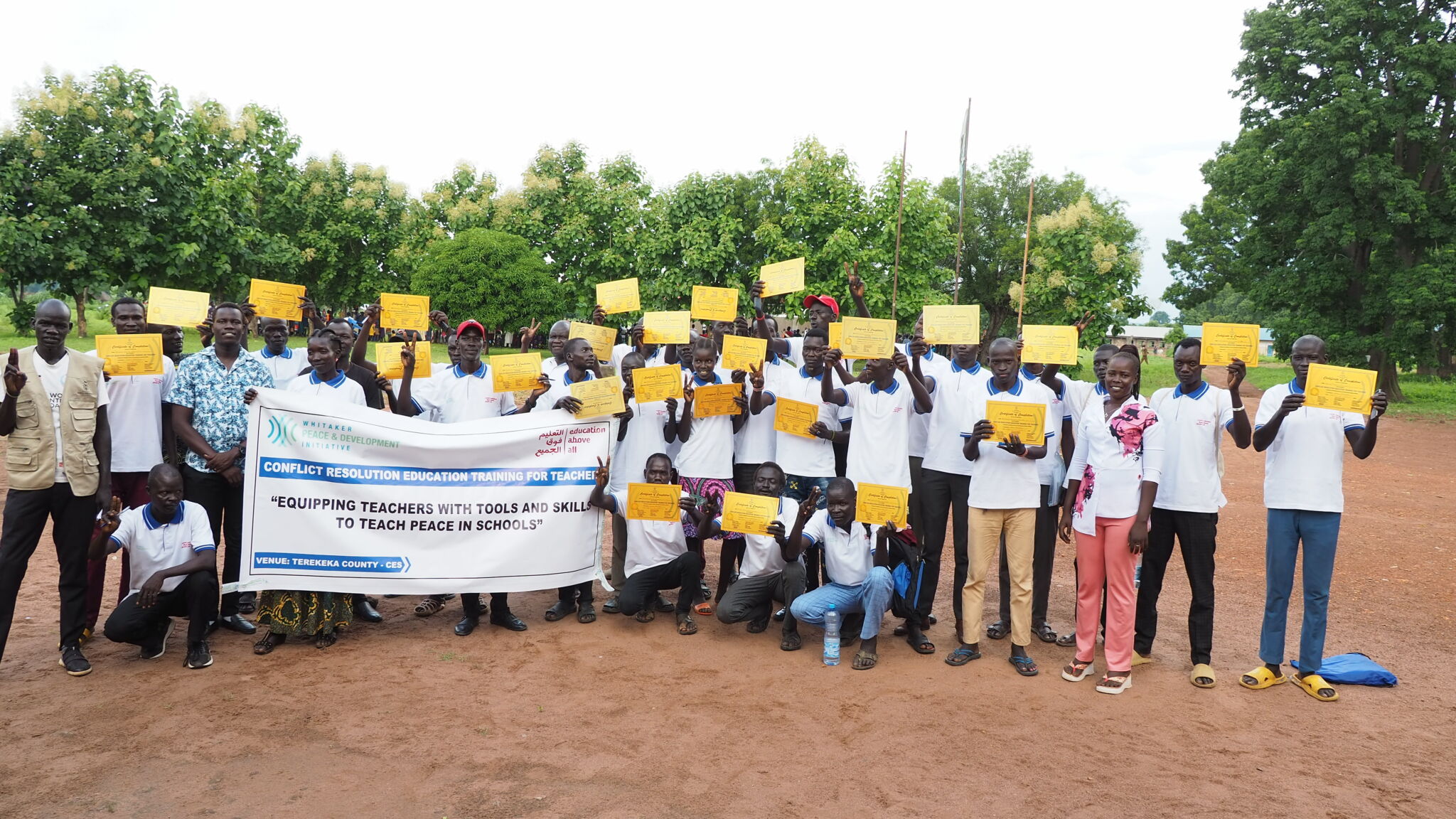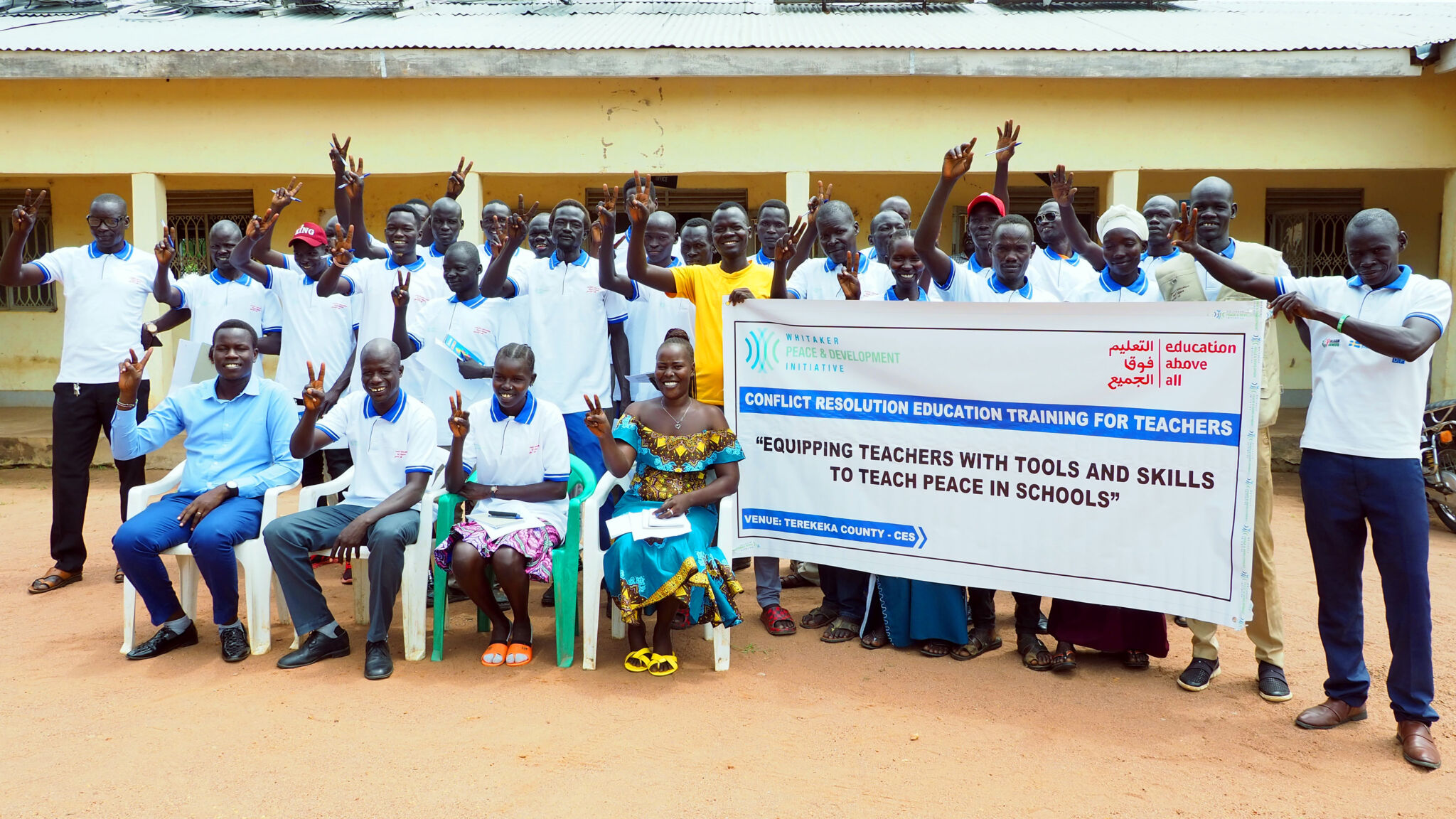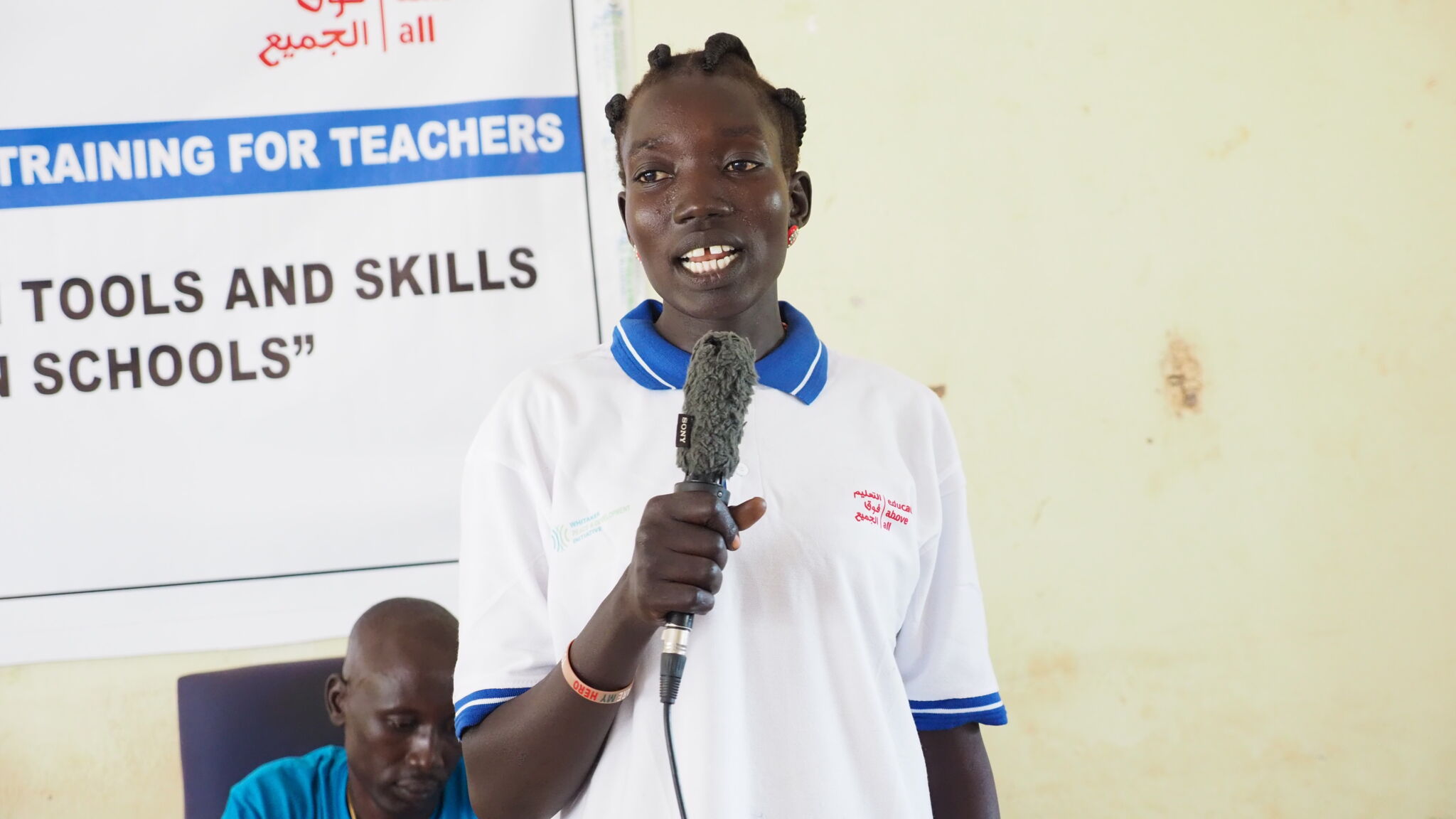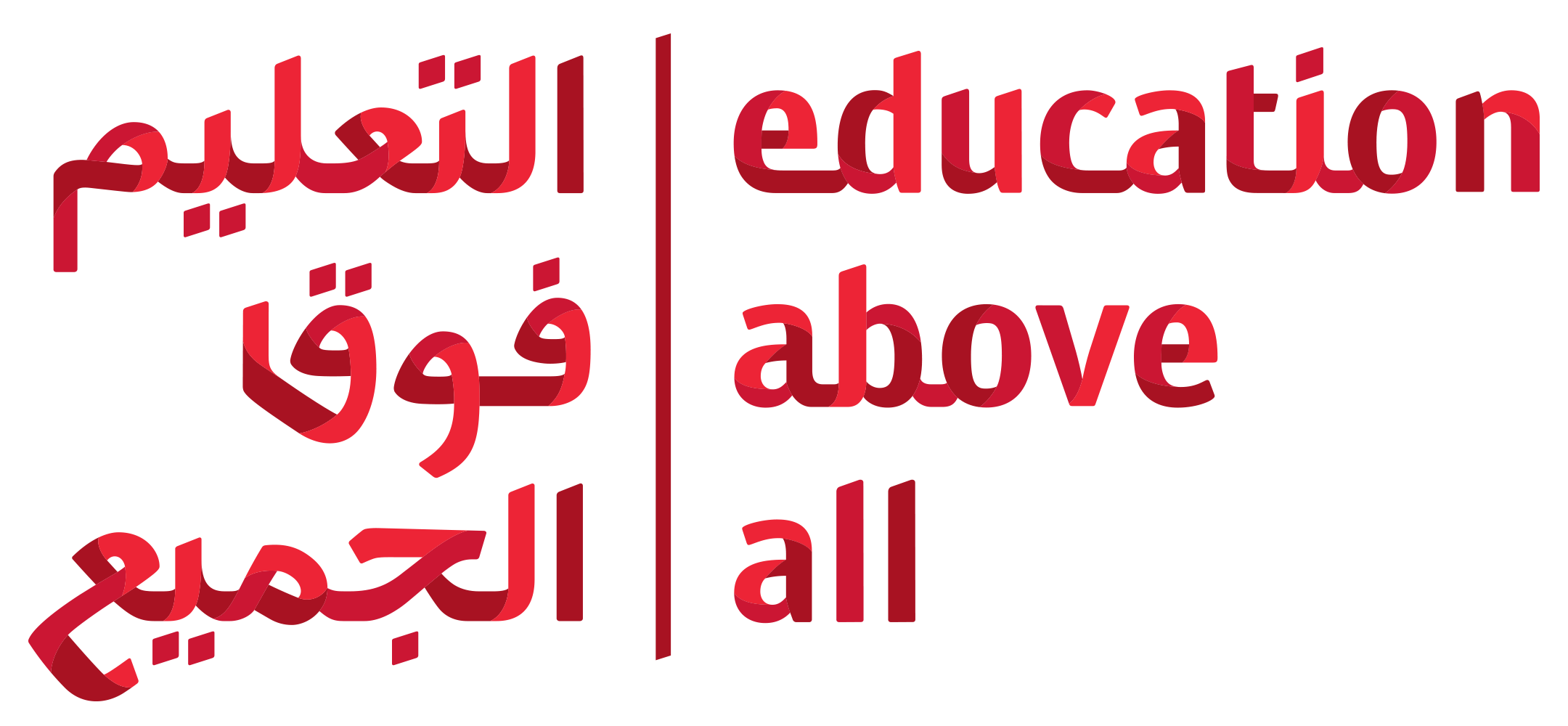August 23, 2023 – In countries where violence and instability have been the norm for many years, basic social institutions that most of us take for granted are often lacking. Peacebuilding, for example, namely the ability to maintain conditions of peace in the daily lives of our communities, cannot happen if underprivileged communities lack the capacity for resolving conflict in a peaceful manner. This is the case in South Sudan, the world’s youngest country, which has suffered from a decade-long civil war which has cost many thousands of lives and which has led to the displacement of hundreds of thousands of refugees.

Our Conflict Resolution Education (CRE) program has been designed to address these issues in part, by turning young people into active peacemakers in communities suffering from insecurity and conflict. It seeks to provide them with the knowledge and skills required to ensure the promotion of positive social life skills and attitudes that can lead to a culture of non-violence and foster social cohesion. It is an empowering process that seeks to effect a positive change through the development of personal non-violent capacities and adopts a multicultural approach to changing both people and their communities to think positively. In order to achieve these ambitious social objectives, it is important to share our approach with local educational institutions, making sure teachers in primary and secondary schools have the required skills to dissipate our specific message and peacebuilding strategy to students.

In June, we ran a special teacher training program for 60 teachers (10 teachers from 6 different schools) in Central Equatoria State, South Sudan, notably in the counties of Lainya and Terekeka. Overall, the program was established in 49 schools around Central Equatoria State this year, mostly as a response to the rising level of young people’s involvement in violent conflicts in South Sudan.
Topics covered during the training session included: objectives of the Conflict Resolution Education program and class management, understanding conflict, (definition of conflict, characteristics of conflict, types of conflict, sources and causes of conflict, approaches to conflict and conflict styles, conflict analysis), cooperation, peer mediation and negotiation, identity, emotions and communication skills.

For many participants, this was their first introduction to such peacebuilding strategies. Kenyi Albino, one of the teachers who attended the training, said: “It’s my first time attending a Conflict Resolution Education training session. In my community, we have a lot of conflicts that sometimes become violent, causing people to lose lives and livelihoods. There is so much hatred and division among the community members with a desire for revenge all the time. WPDI has really come at the right time to give us this knowledge and skills which I personally didn’t know. I have understood the meaning of conflict and how to resolve conflicts constructively. Going forward, I am going to ensure corporal punishment which is violent in nature does not happen at the school and that teachers will be able to show the values of peace and professionalism in handling their duties.”
At WPDI, the success of our CRE program is why it has for so long remained the backbone of our global peacebuilding strategy and commitment to educational initiatives. “In Lainya County, cases of fighting and hatred have significantly reduced as a result of the peace education program for pupils and teachers especially in schools where peace clubs exist. Teachers have also experienced increased skills in resolving conflict issues among children and also among the teachers,” underlined Levi Samson, a county education official.
In partnership with
